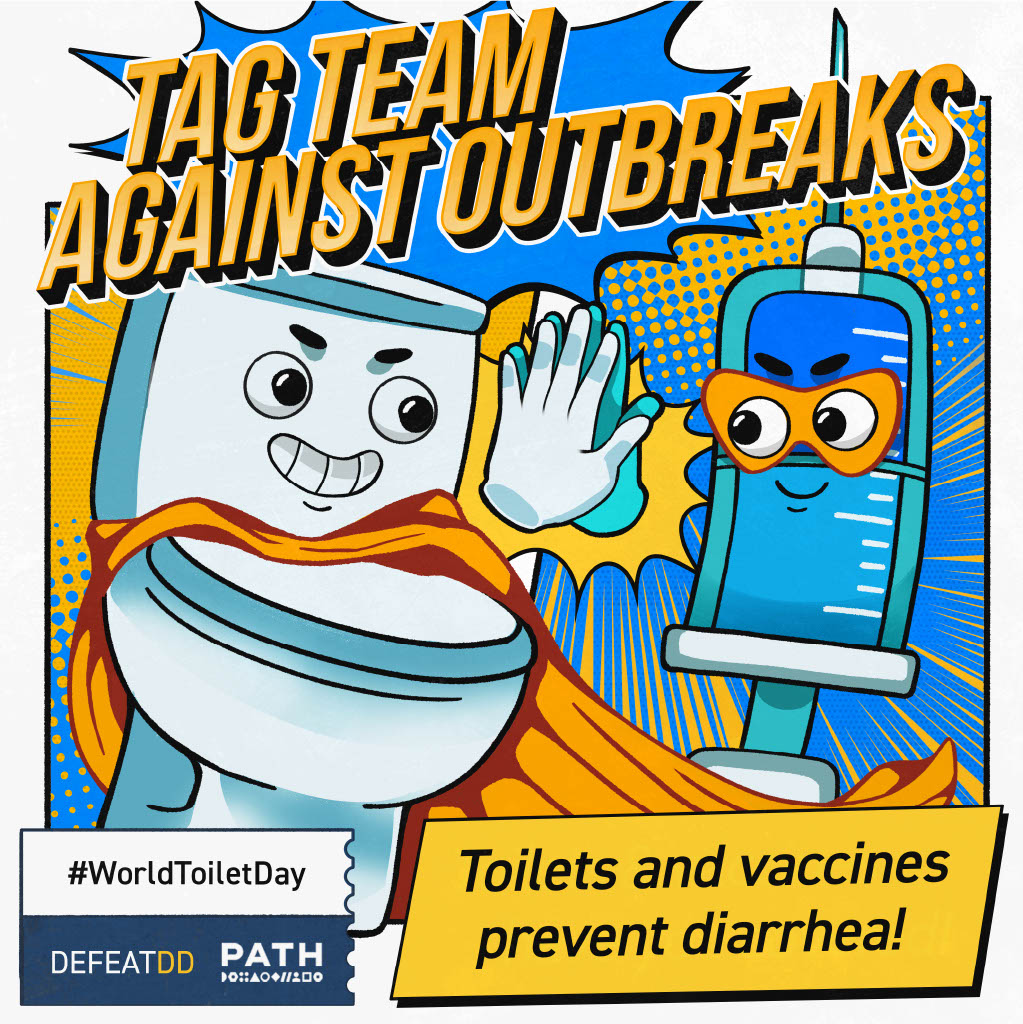
We can defeat diarrhea outbreaks if we prepare for them

We get it. Things feel heavy right now.
Heartbreaking conflict. Record-breaking heat. Economic hardship. In enduring these things, children suffer the most: according to UNICEF, diarrhea kills more children in conflict settings than violence. Climate change, another manmade disaster, is contributing to the surge in cholera outbreaks: in the wake of extreme flooding, unsafe (or nonexistent) toilet facilities result in the spread of infectious disease when fecal matter contaminates drinking water.
If these challenges seem insurmountable, we’re here to tell you: they’re not!
Industrialized societies were once similarly plagued by disease outbreaks in overcrowded cities until the public health discipline, a social justice movement at heart, raised its voice for change. In countries like the US, toilets are so ubiquitous that we take them for granted while forgetting that billions still live without one.
Today’s revolution will look a bit different. Climate-resilient solutions will be key to meet the needs of communities at highest risk for infectious disease outbreaks. This will not look like the inefficient, high-maintenance sewage systems we are familiar with. Non-sewered sanitation solutions will provide the flexible, adaptive approaches appropriate for informal settlements and families on the move. In this way, toilets are a great way for high-income countries to help build climate resiliency.
Safe drinking water and appropriately managed sanitation is the best long-term medicine against diarrheal disease, and the fact that we have the solution to this health crisis can be an antidote to feelings of helplessness.
Another source of inspiration: this year is the 50th anniversary of the Expanded Programme on Immunization, the system through which countries deliver vaccines to children. The number of children that are alive today thanks to vaccination is truly awe-inspiring. Oral cholera vaccine, available since 2013, is the other solution for addressing the surge in cholera. Investing in vaccination and toilets, and targeting these resources to impoverished settings, are the principles of preparedness that we hope policymakers prioritize in response to the many arenas of avoidable suffering.
Will you help us spread the good news about the potential of toilets and vaccines to defeat diarrheal outbreaks before they start?


